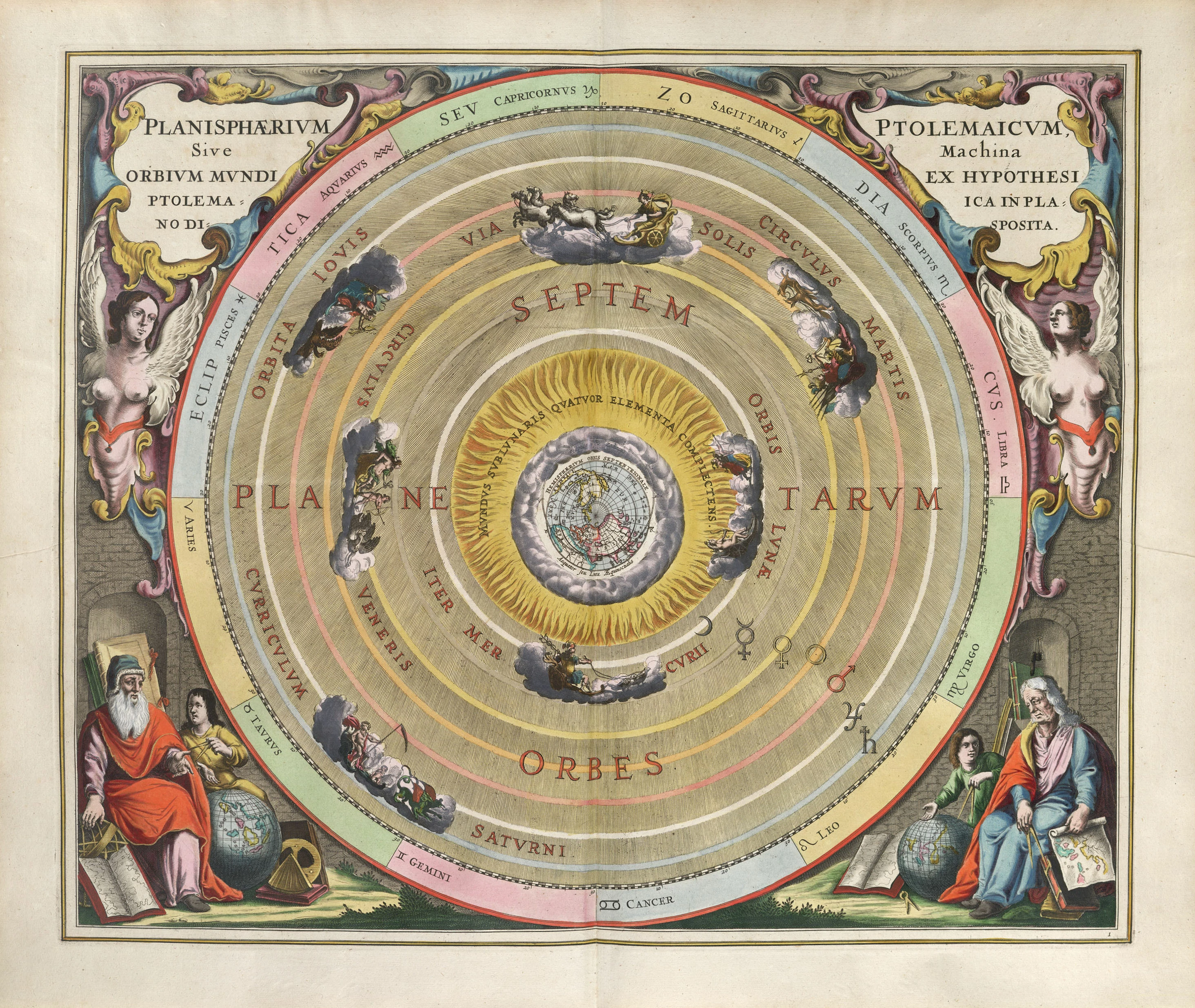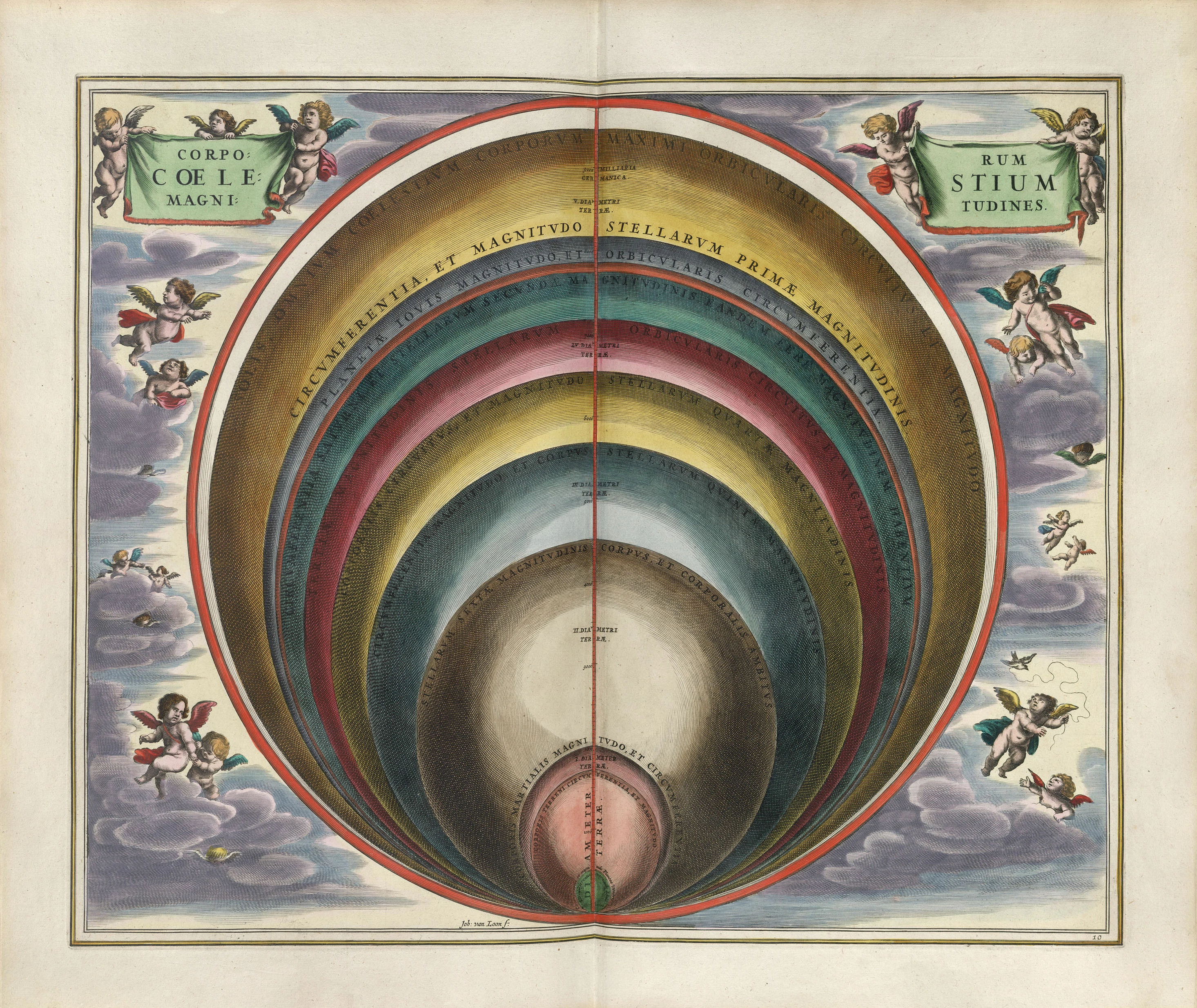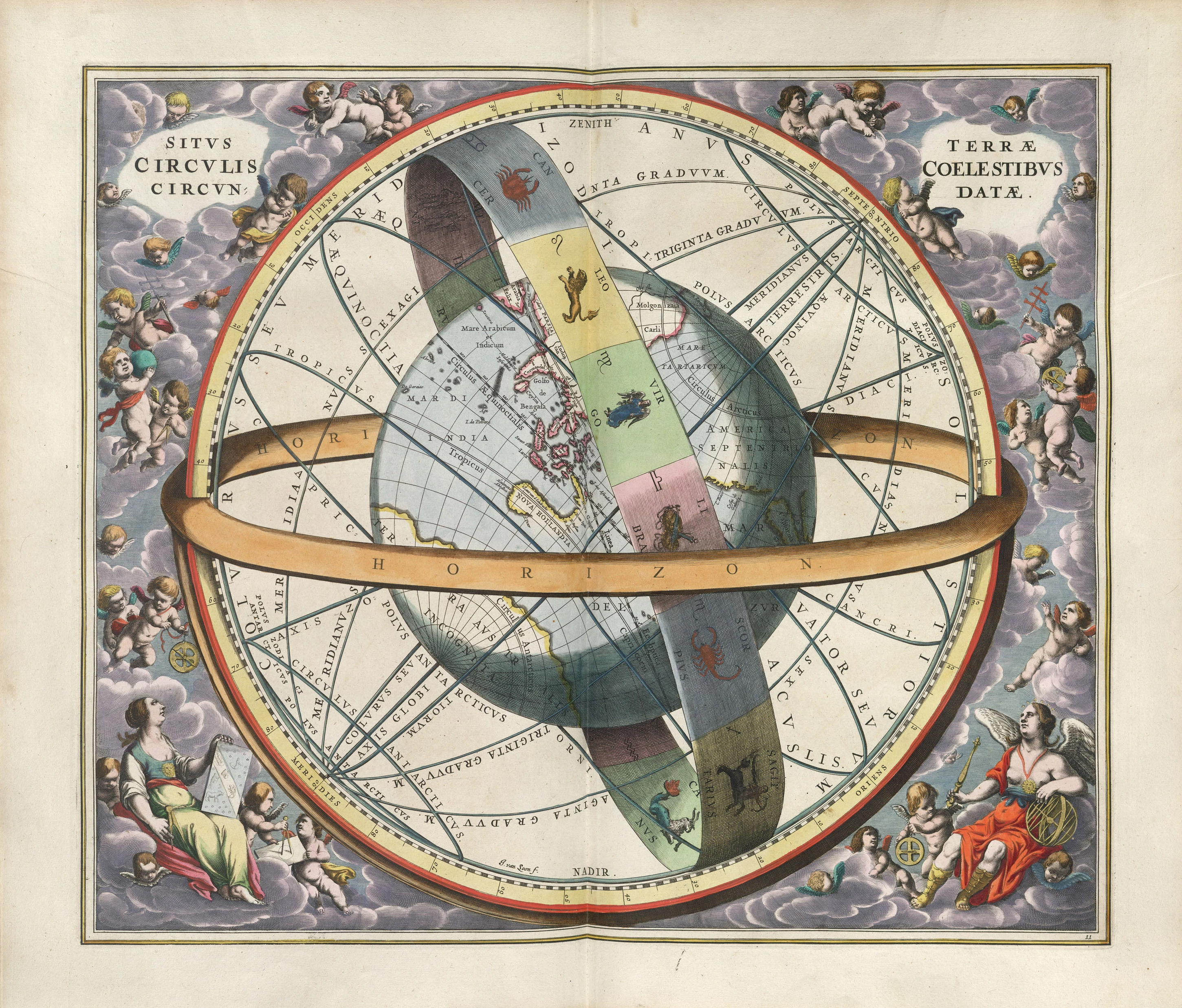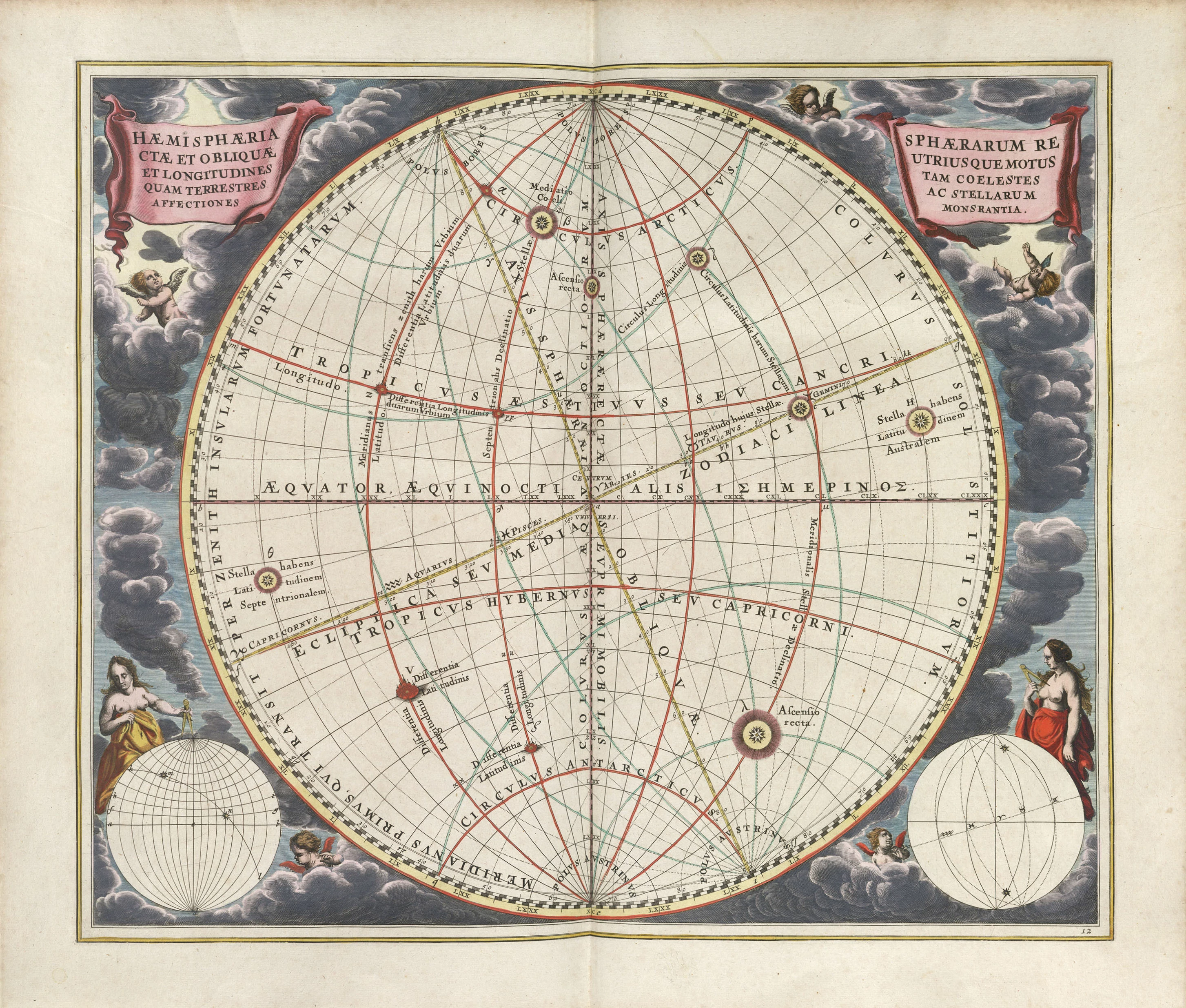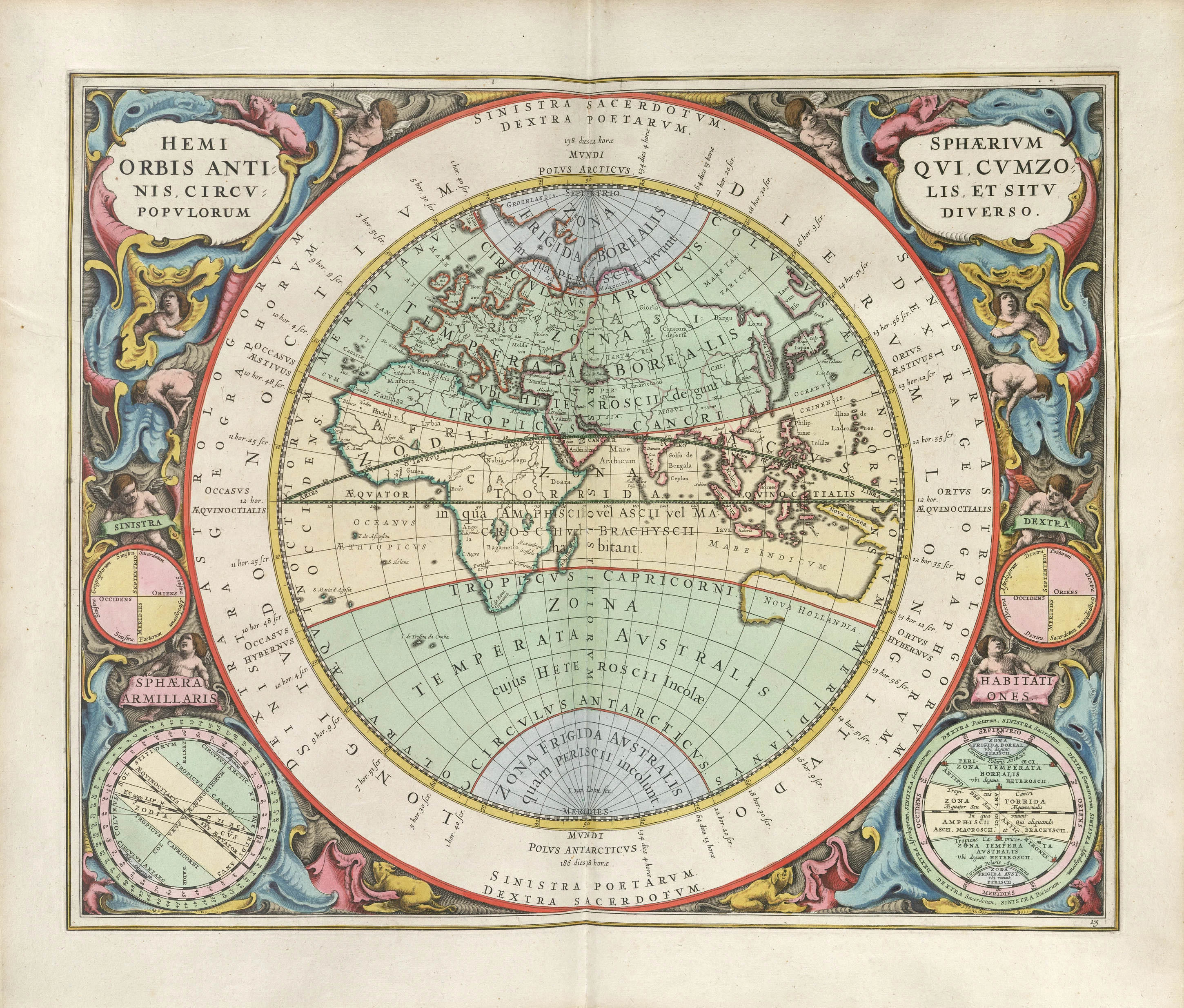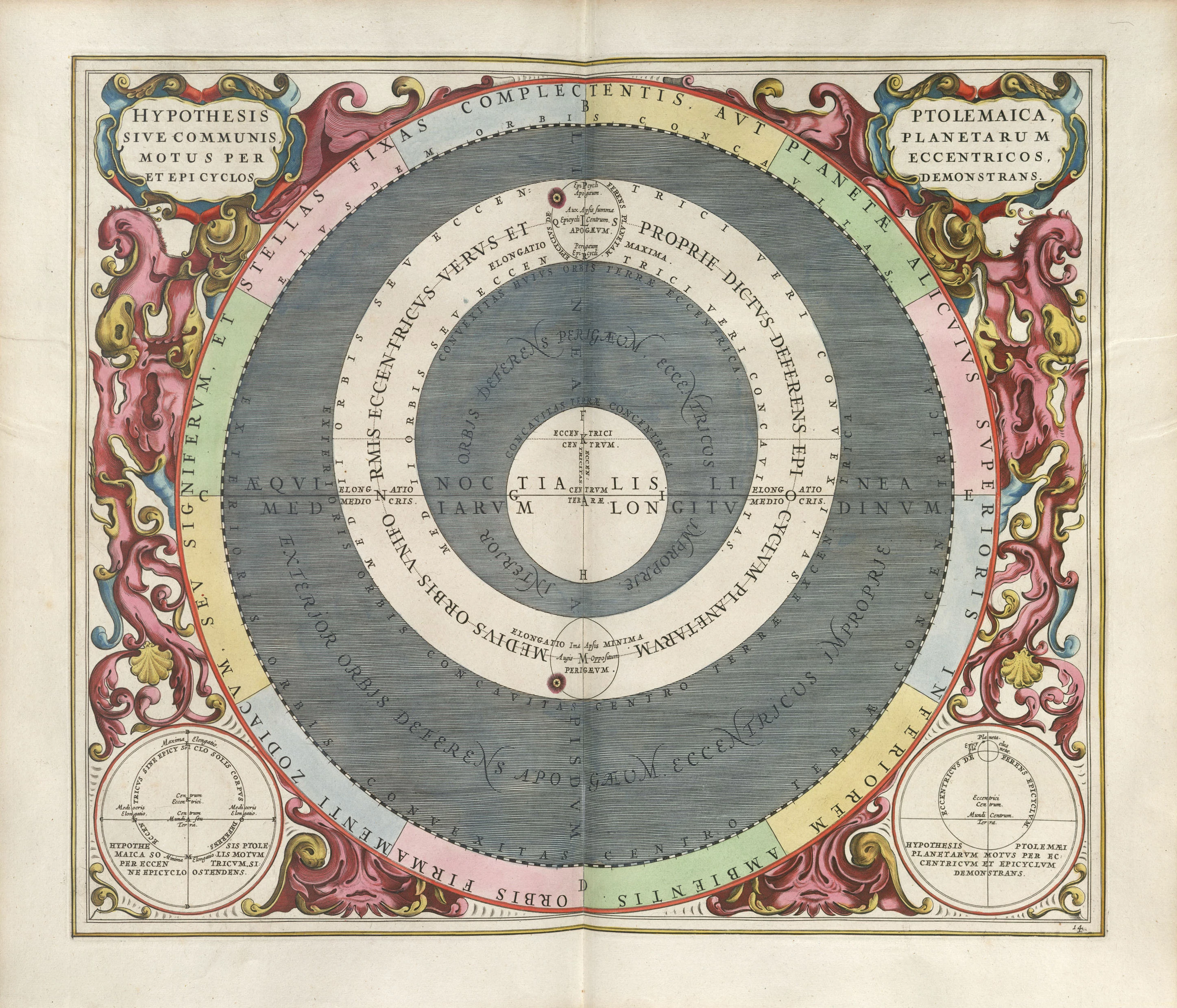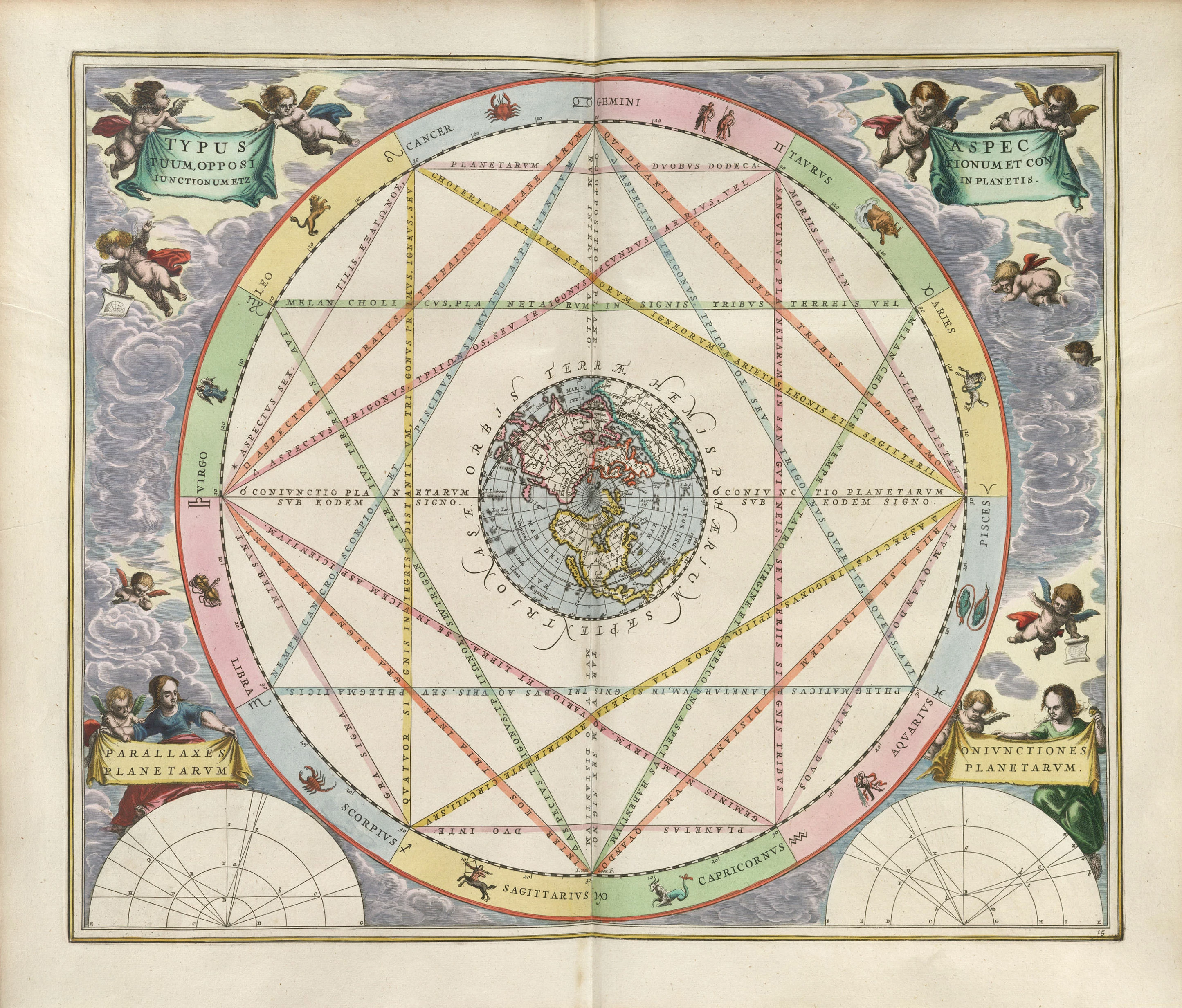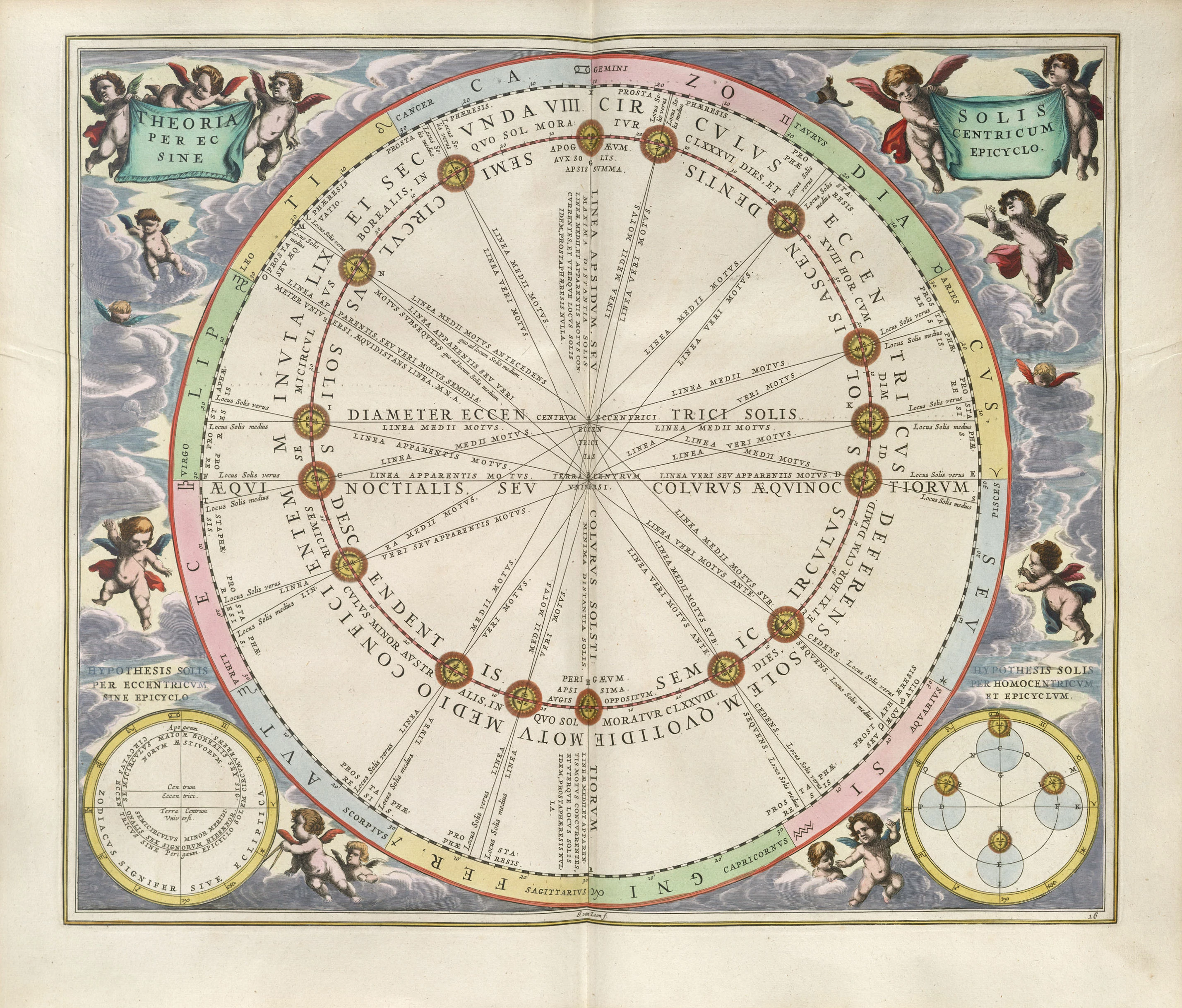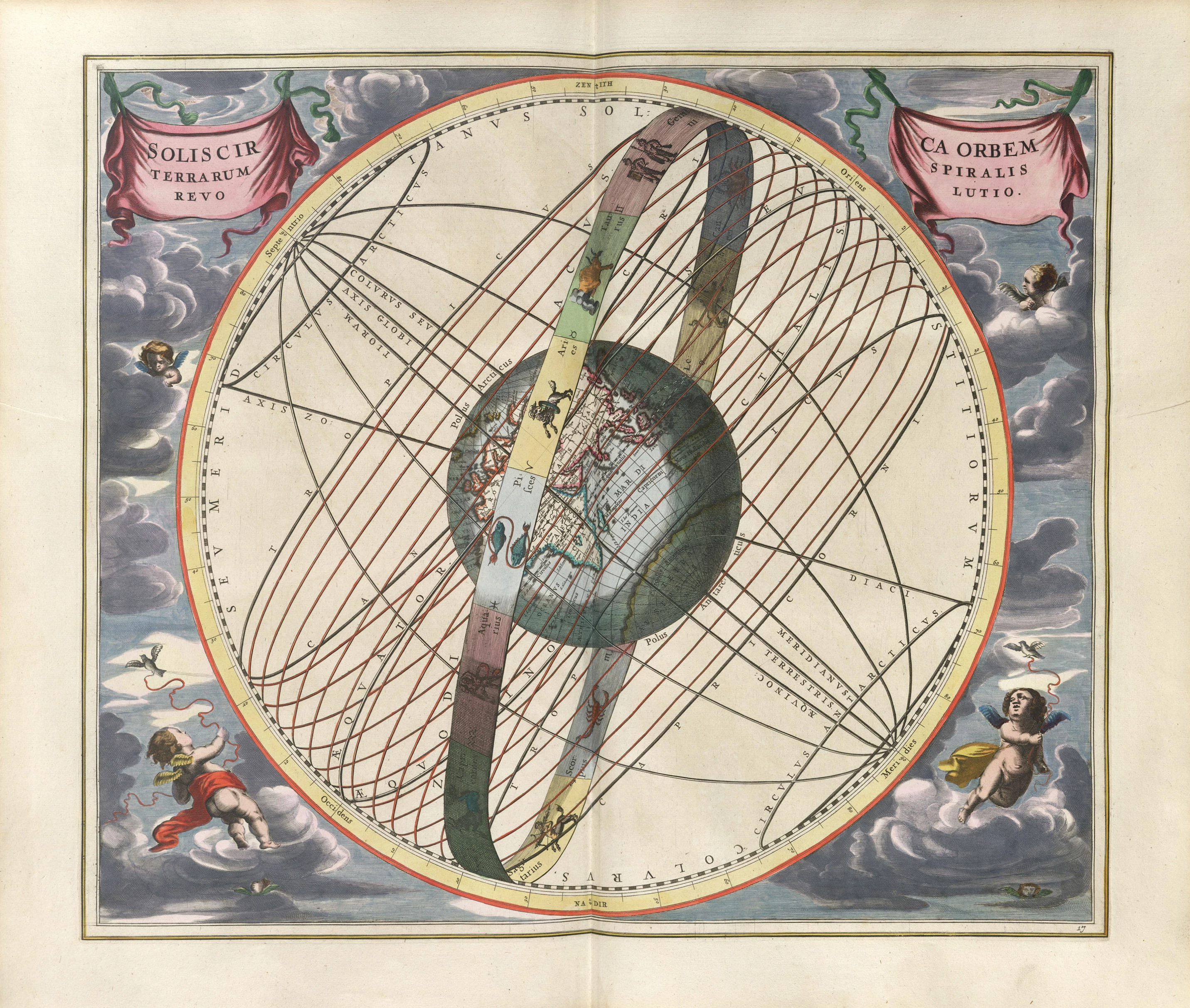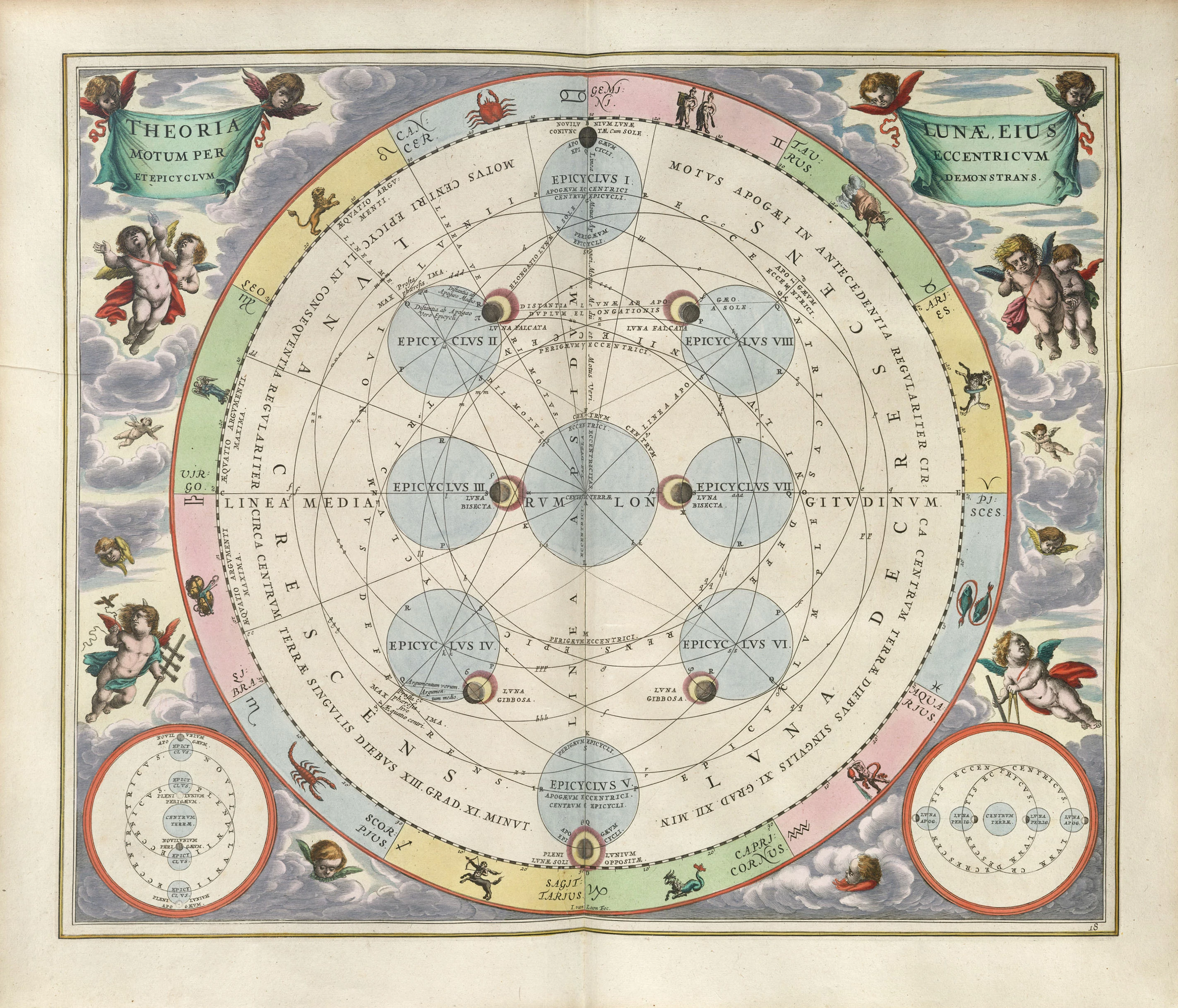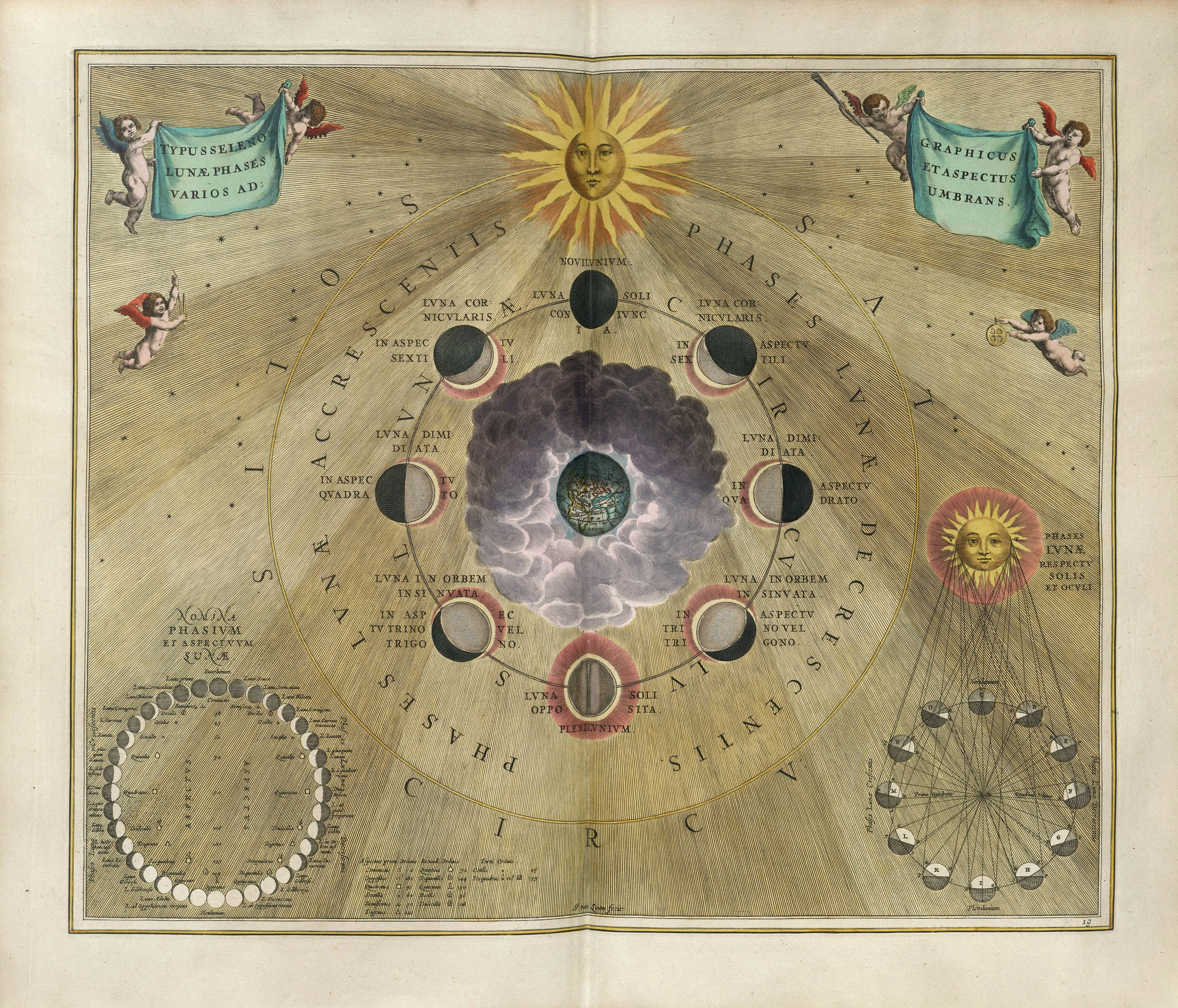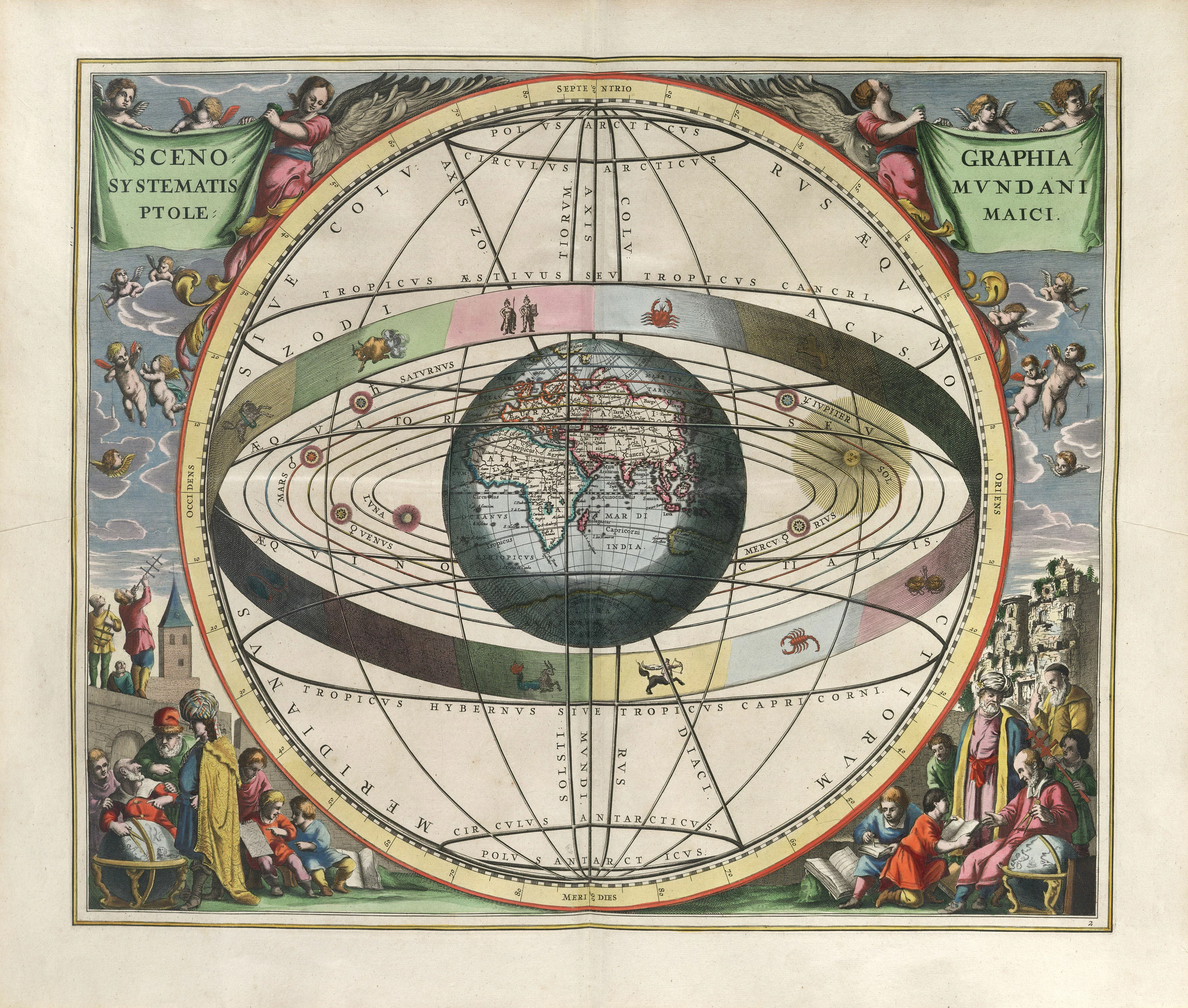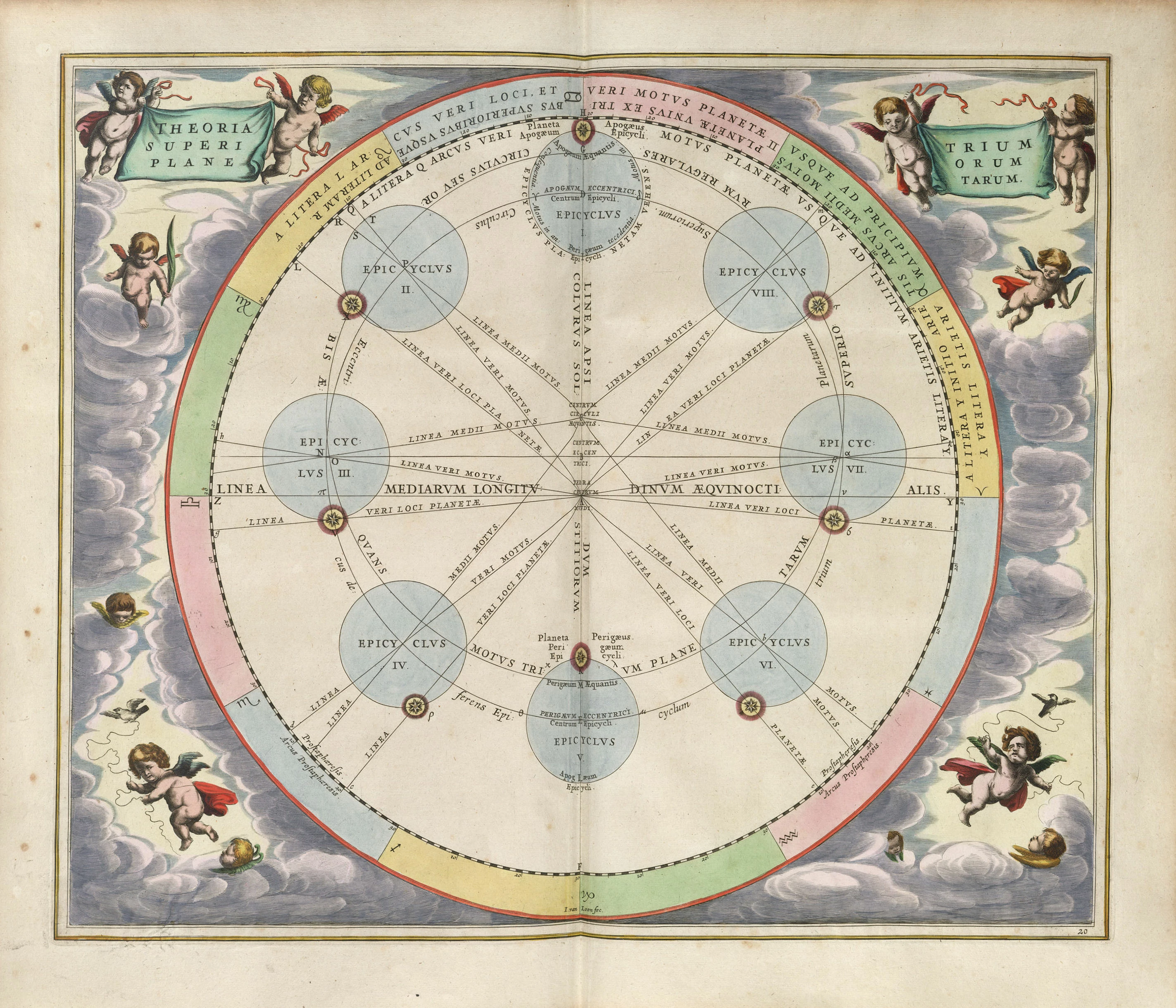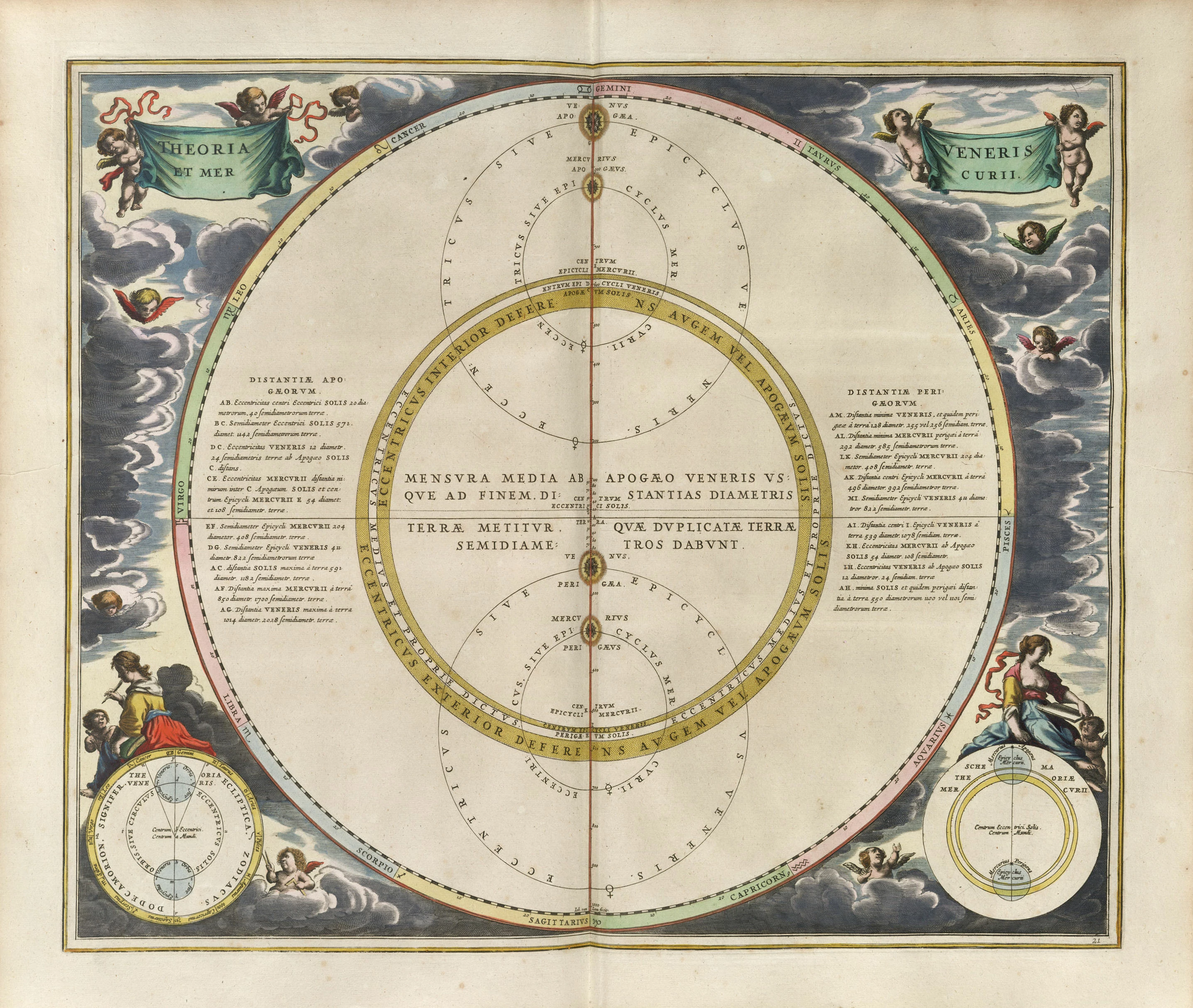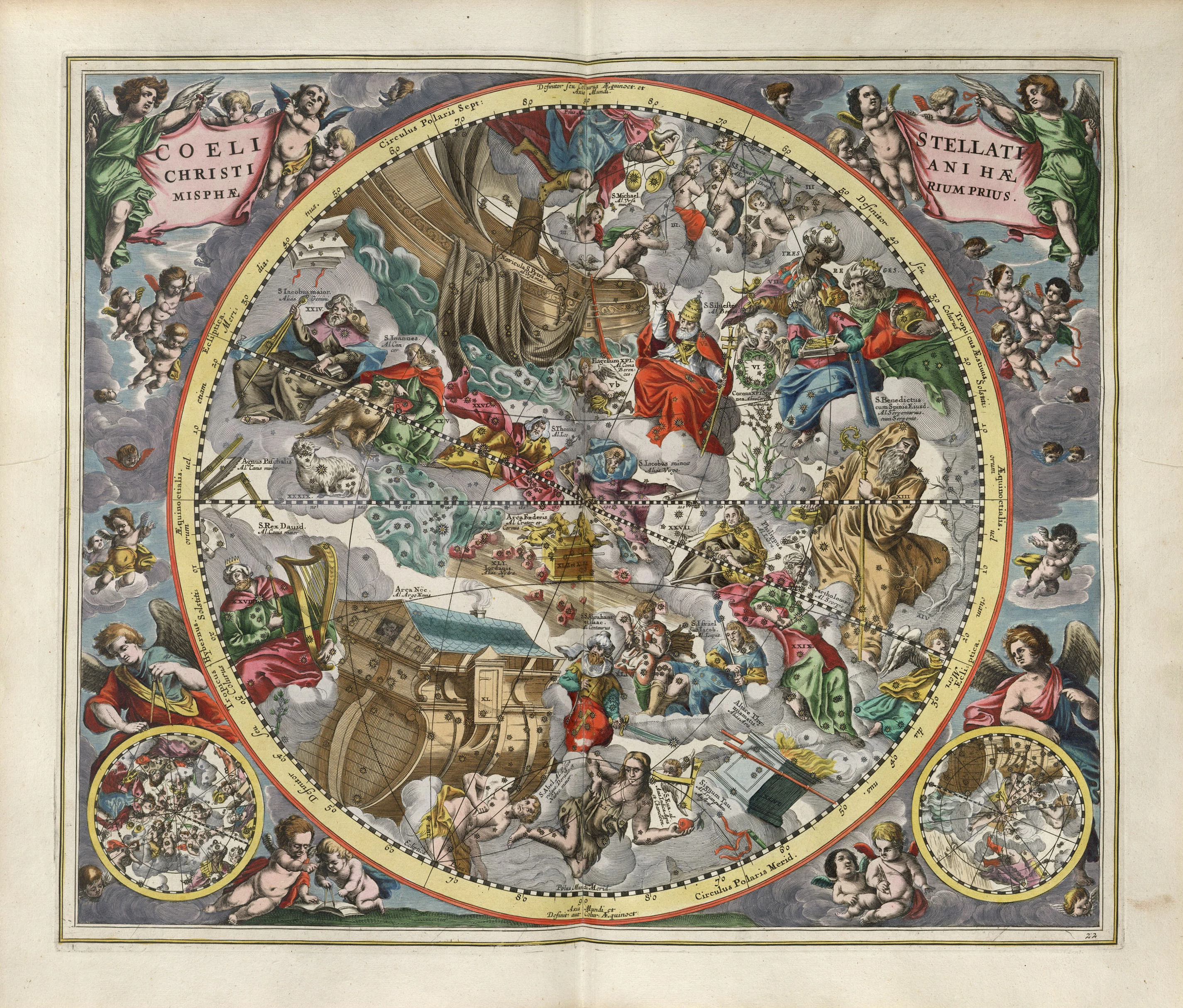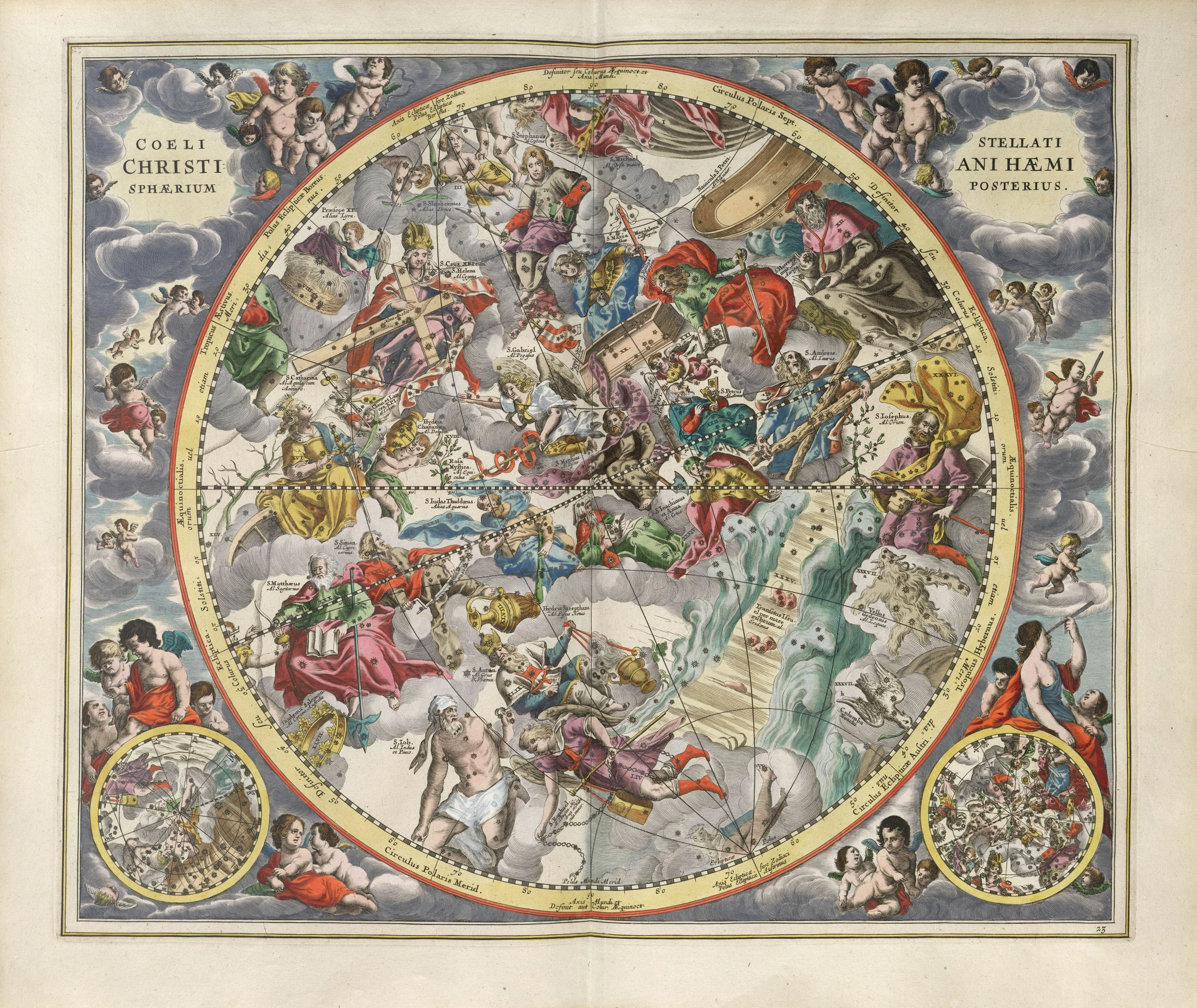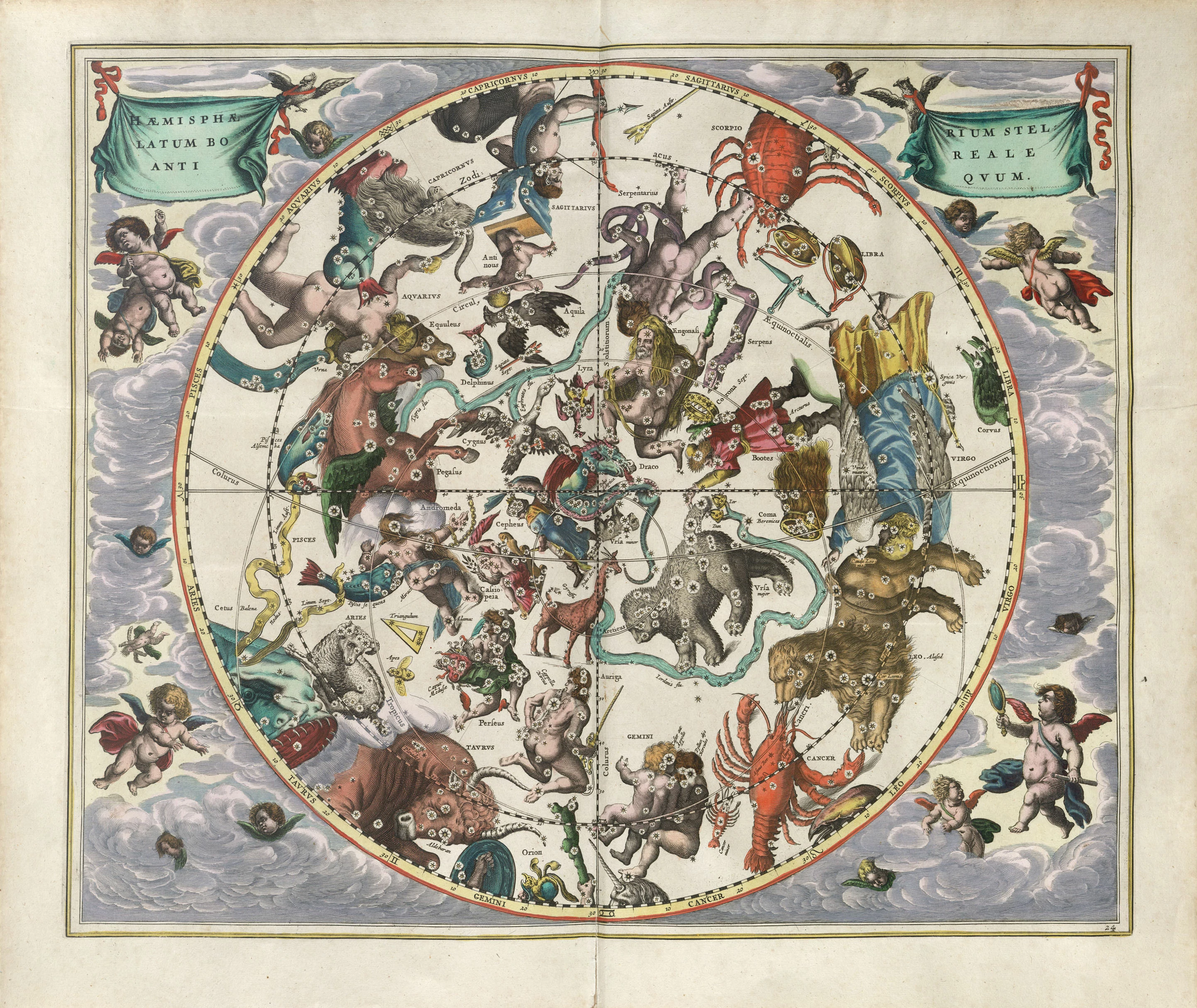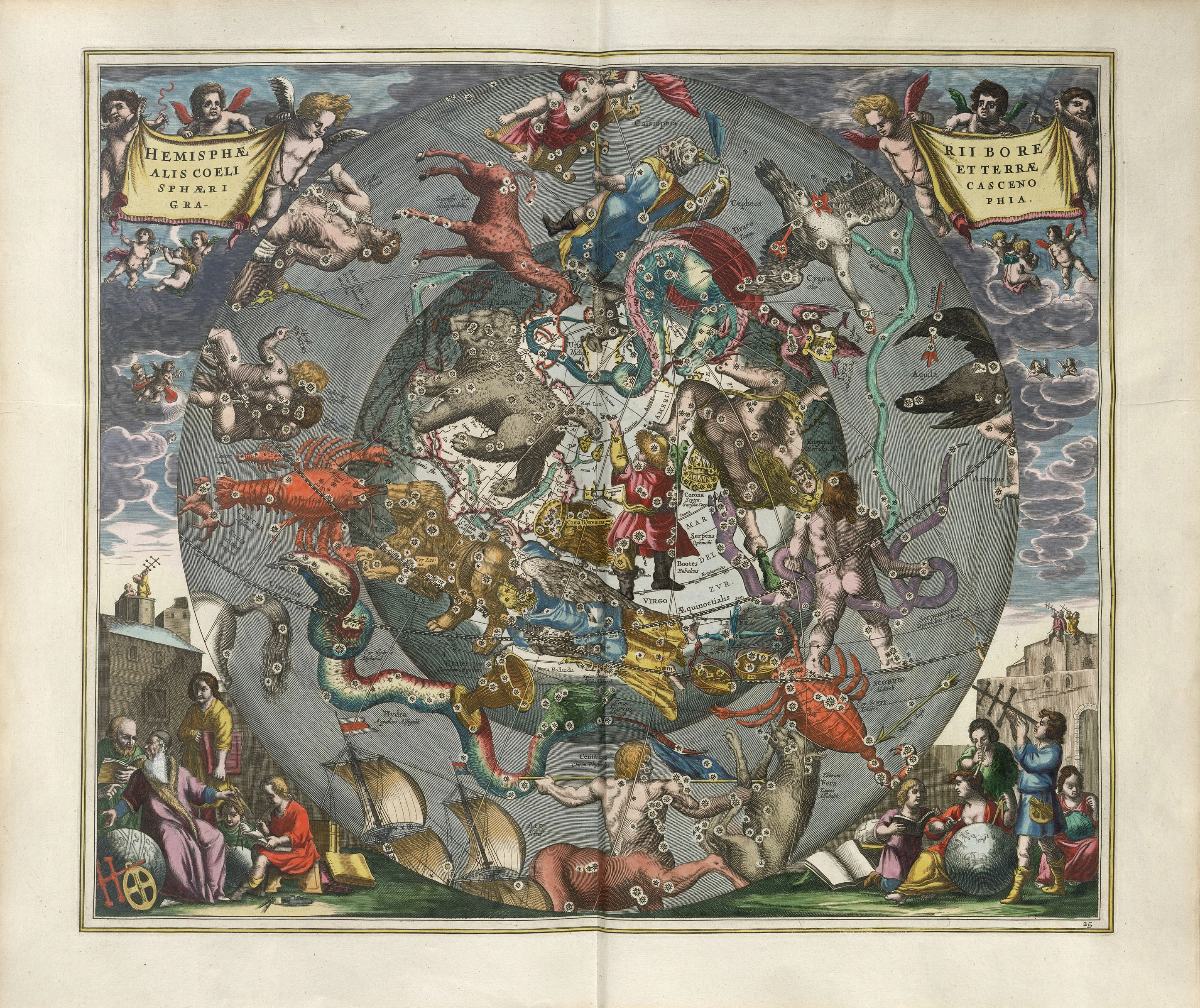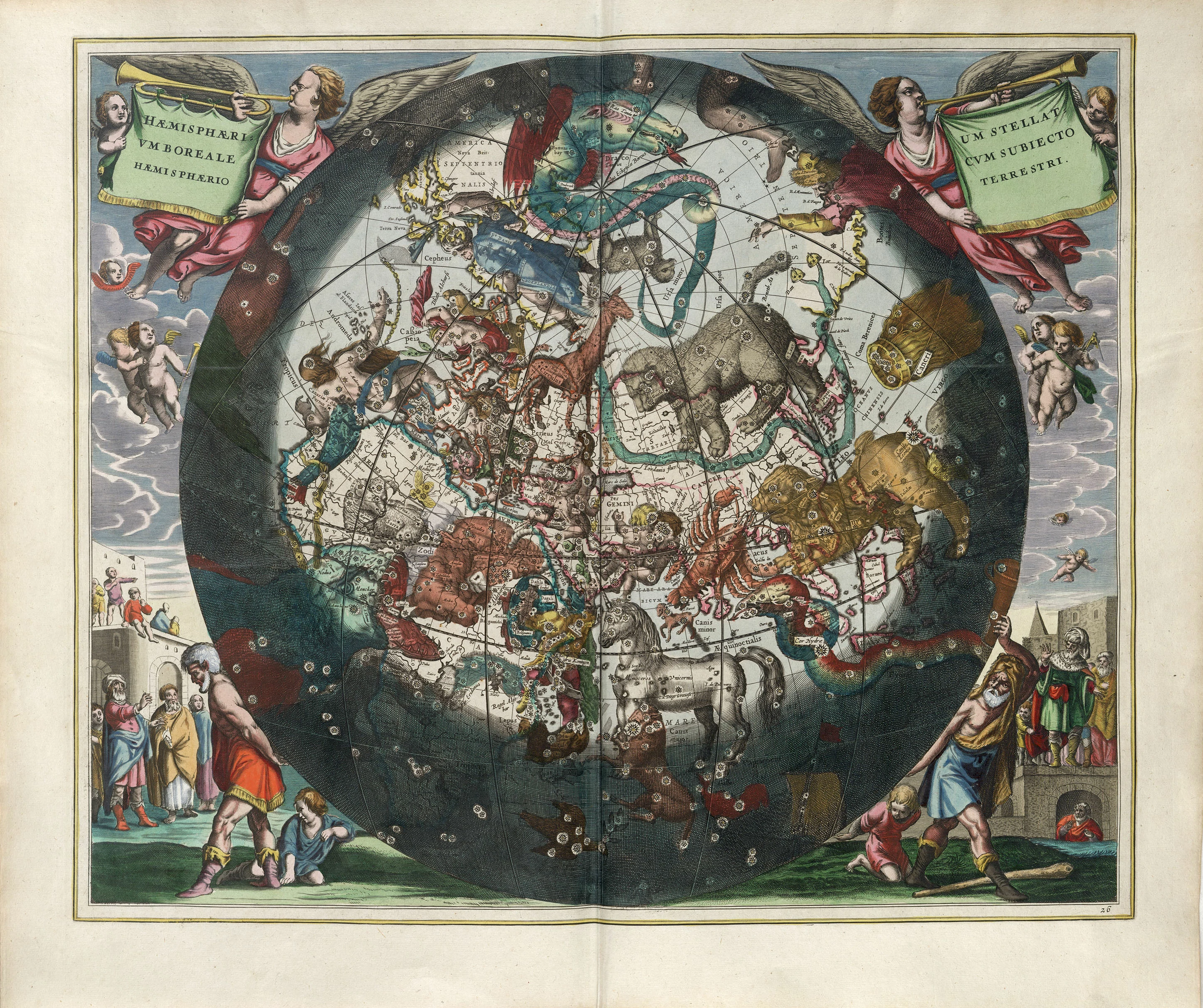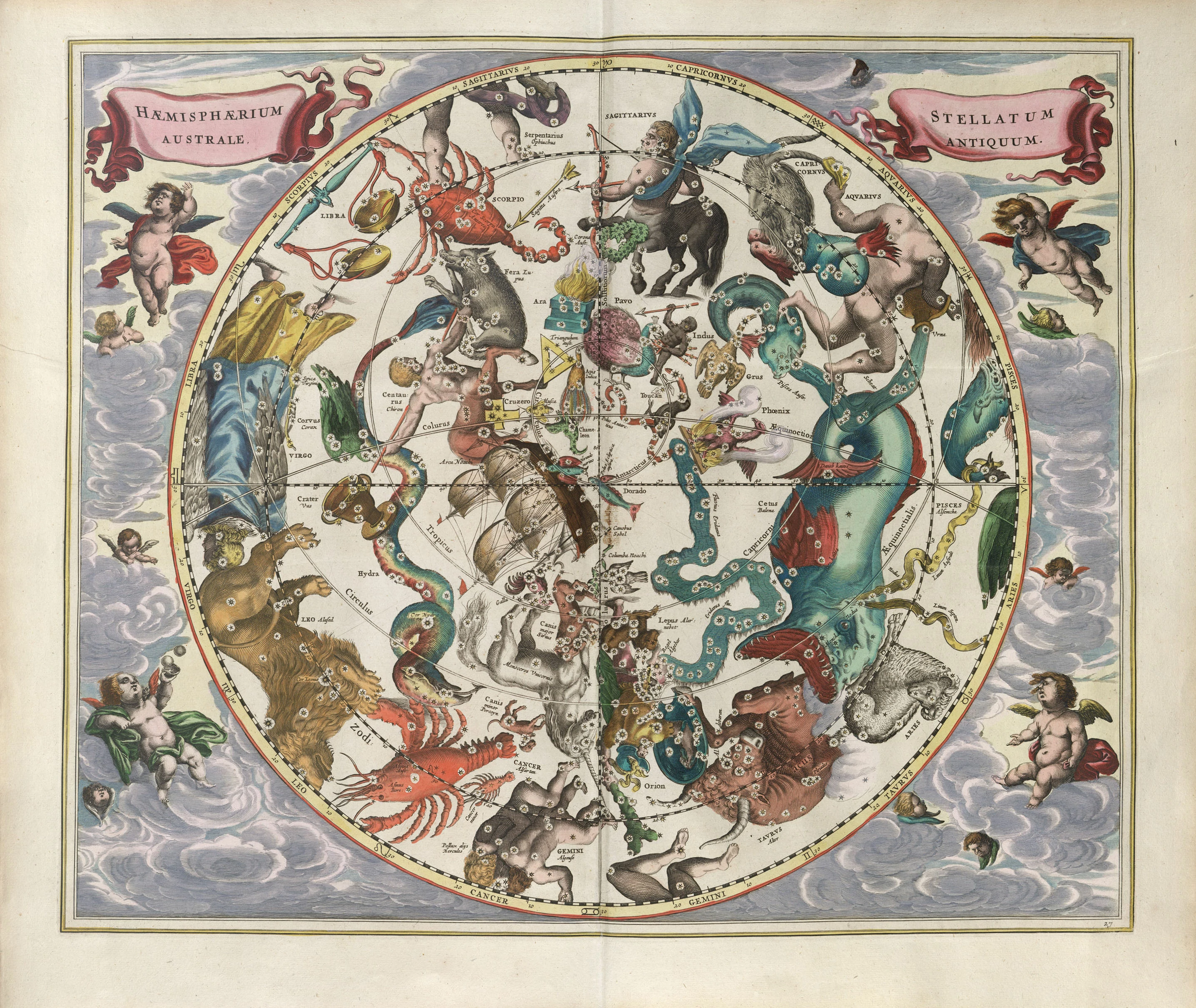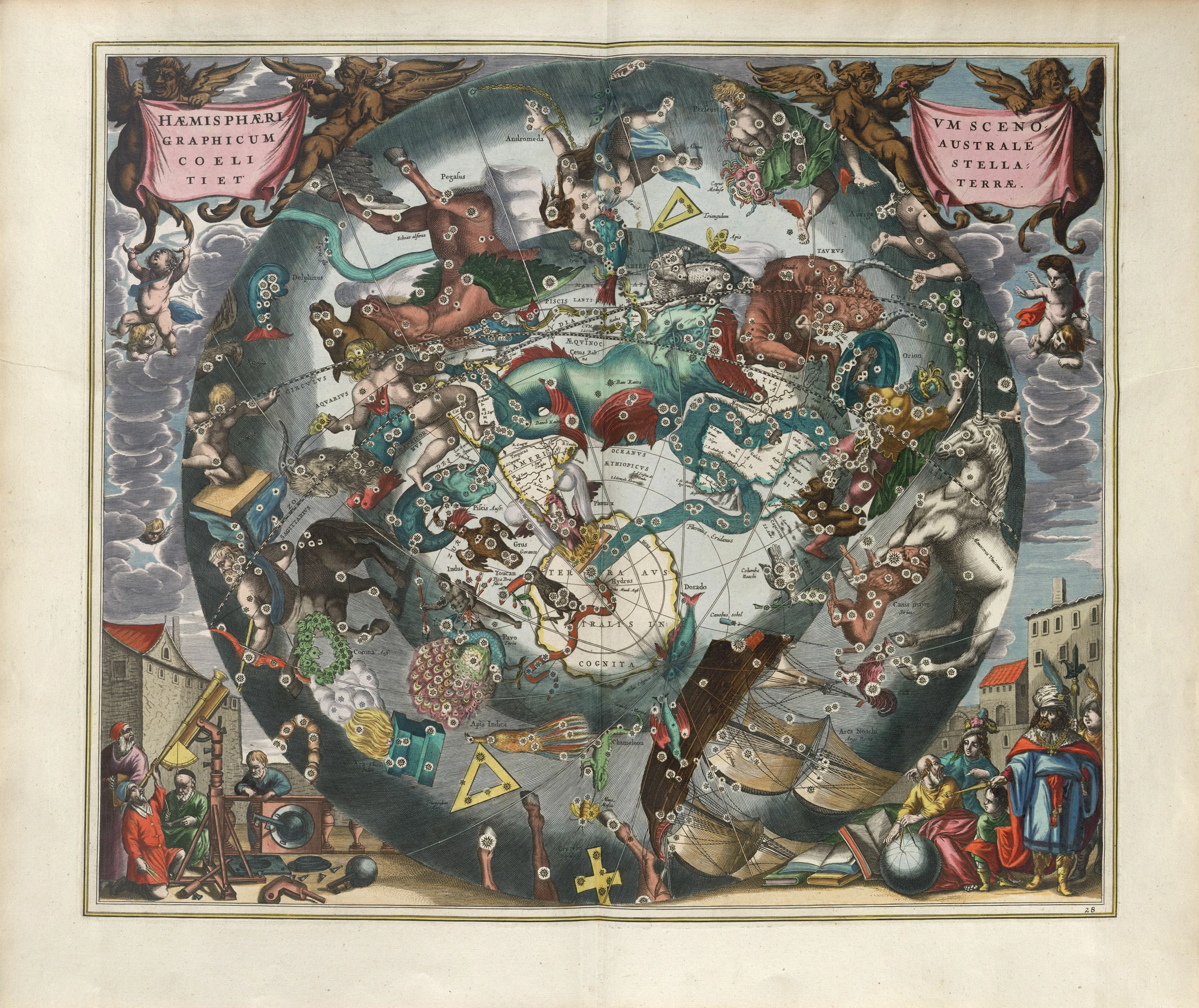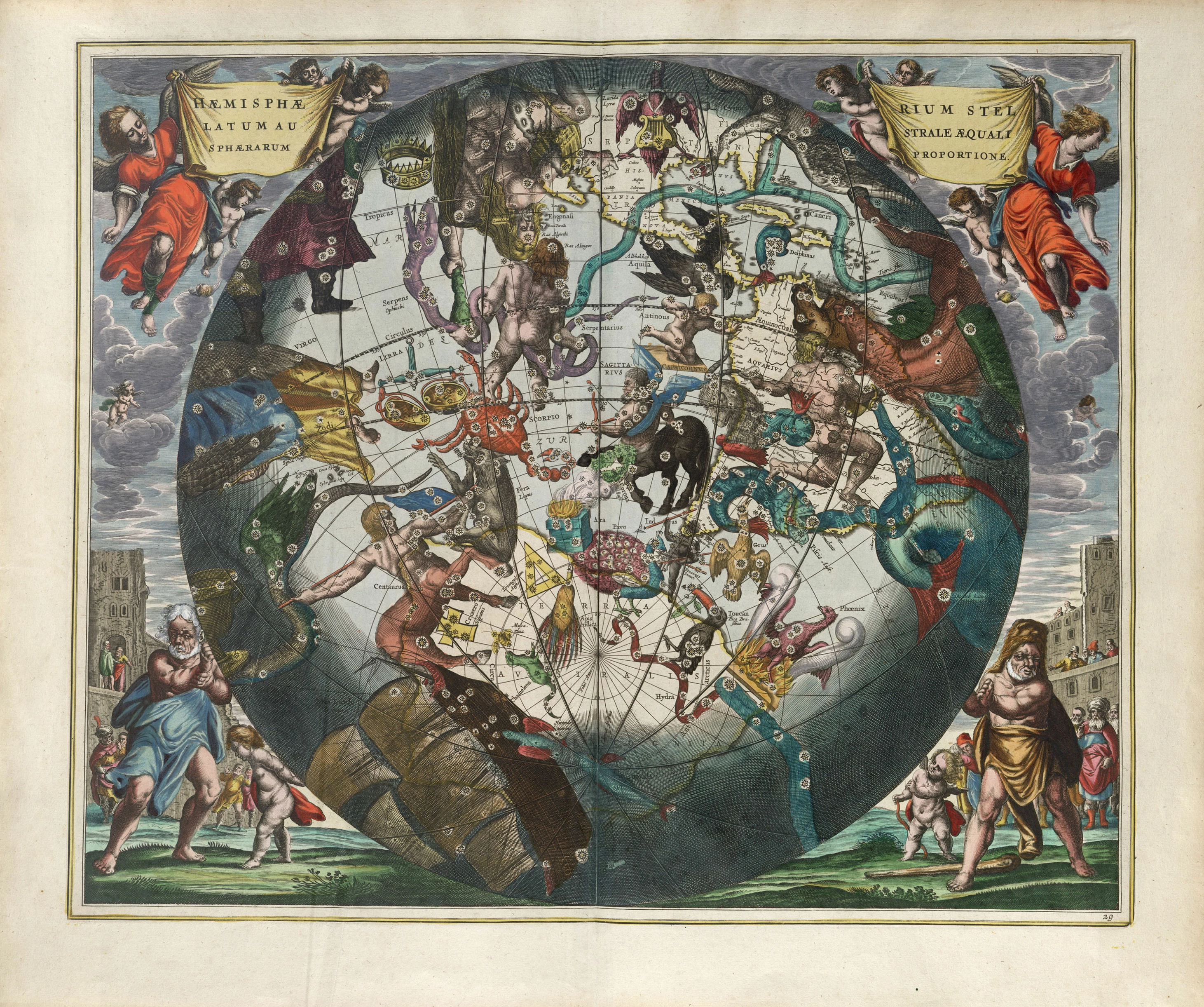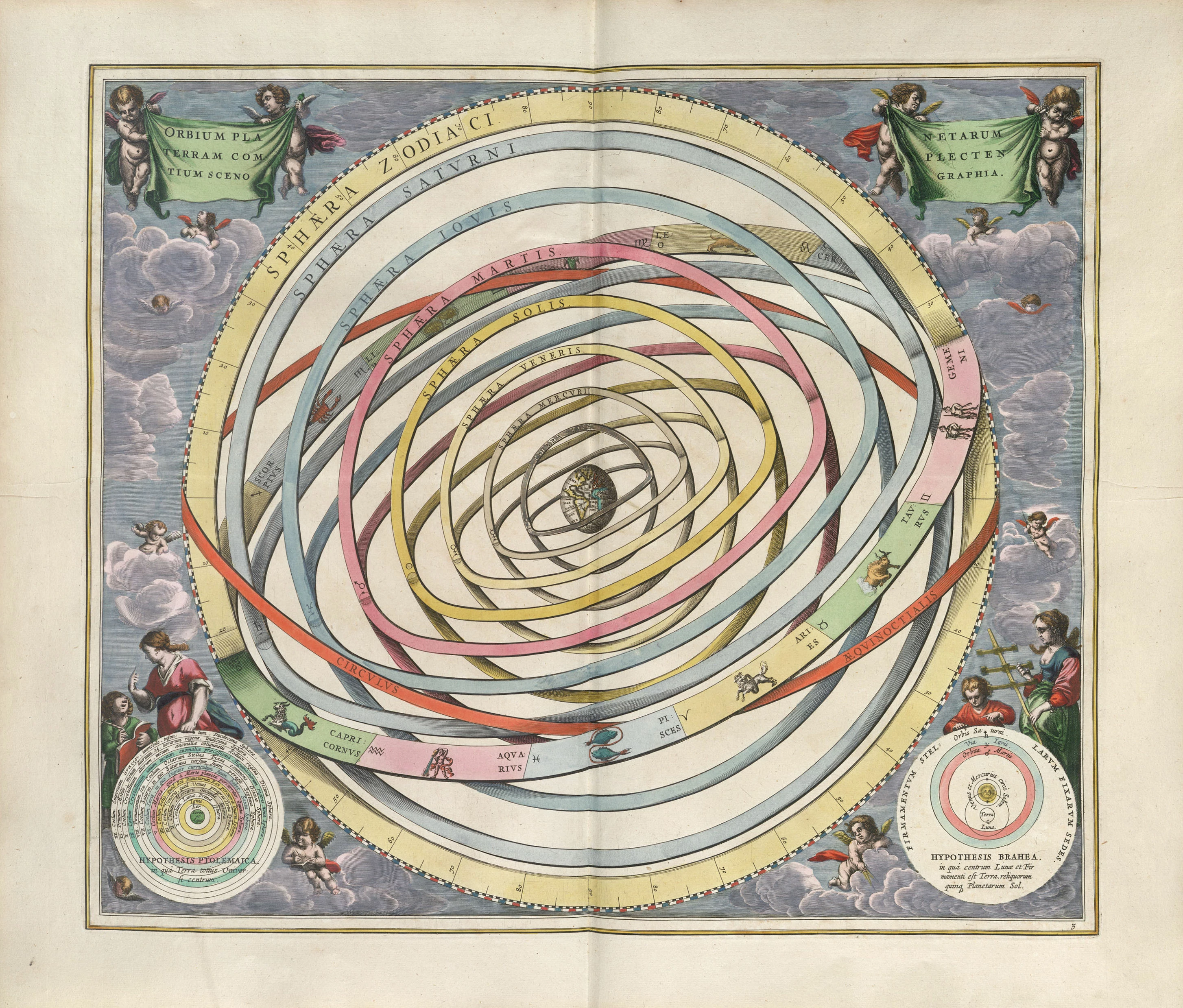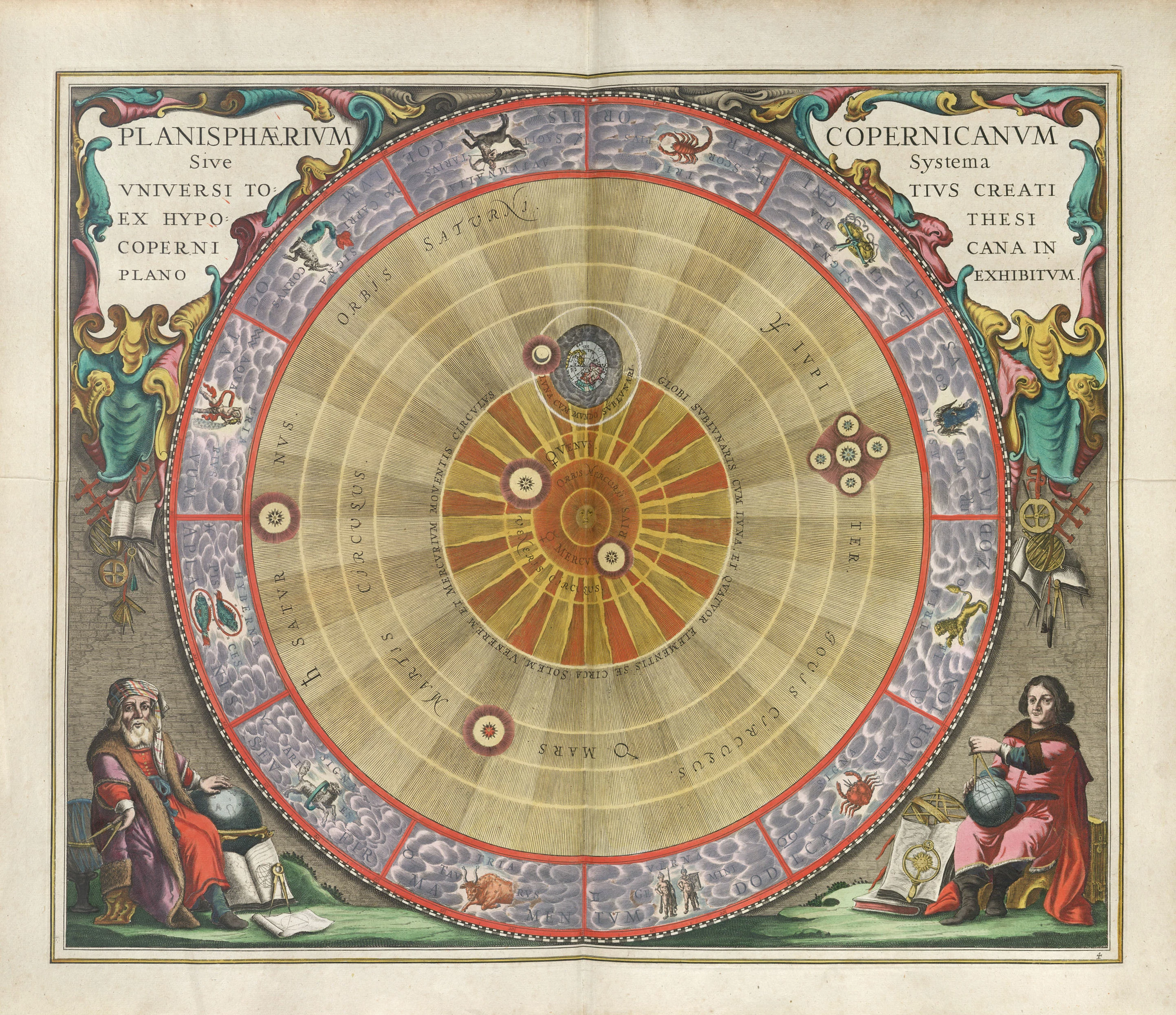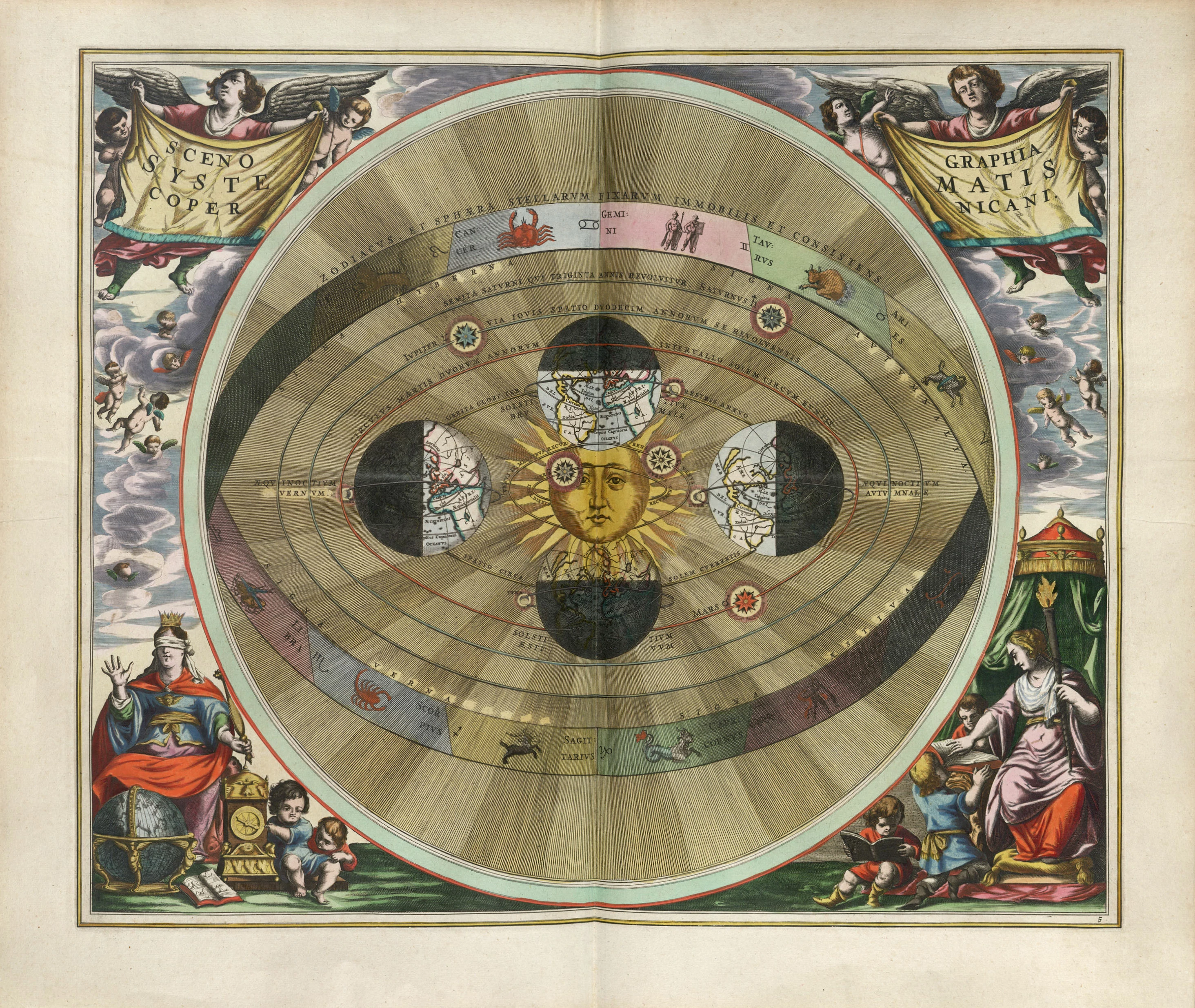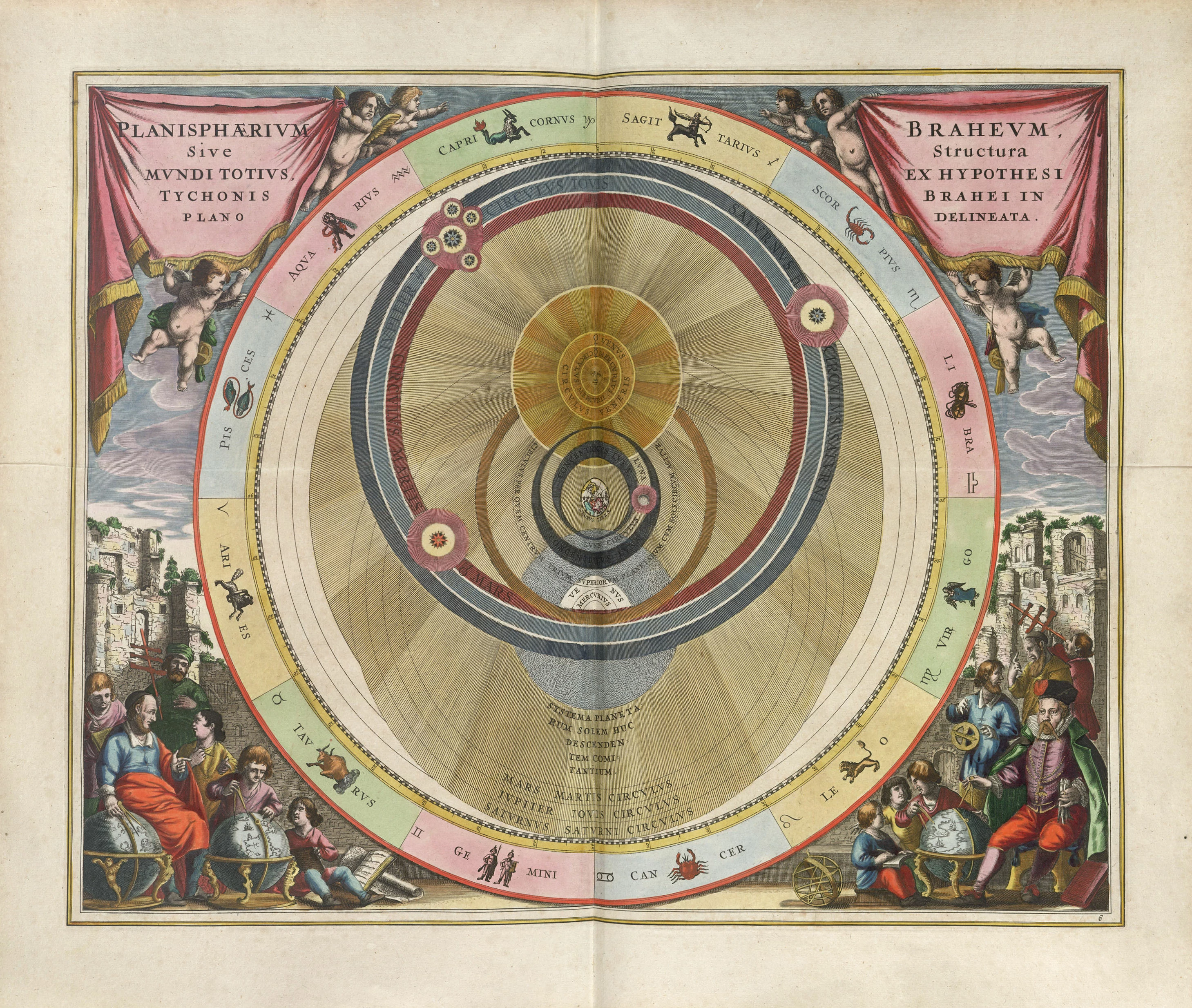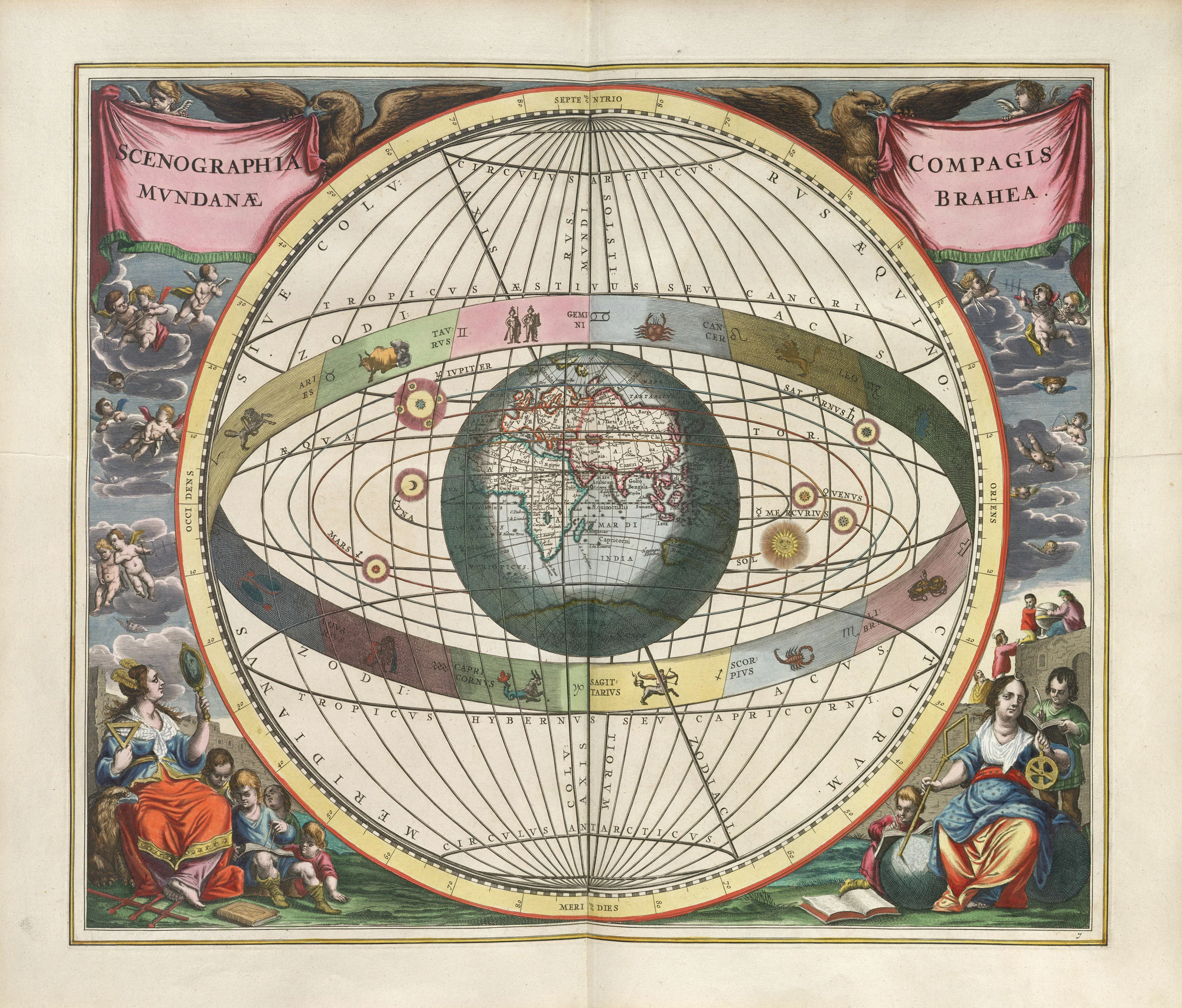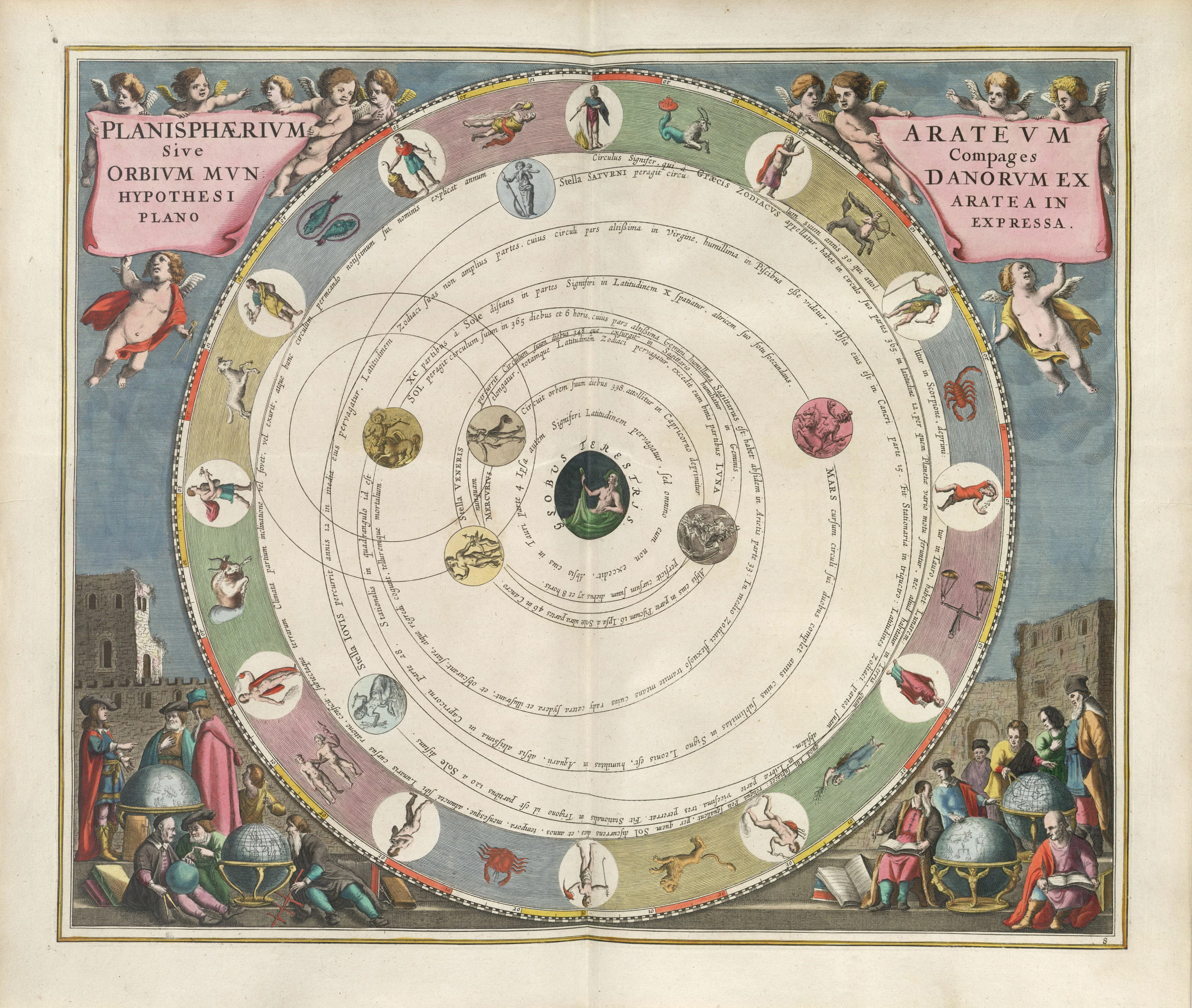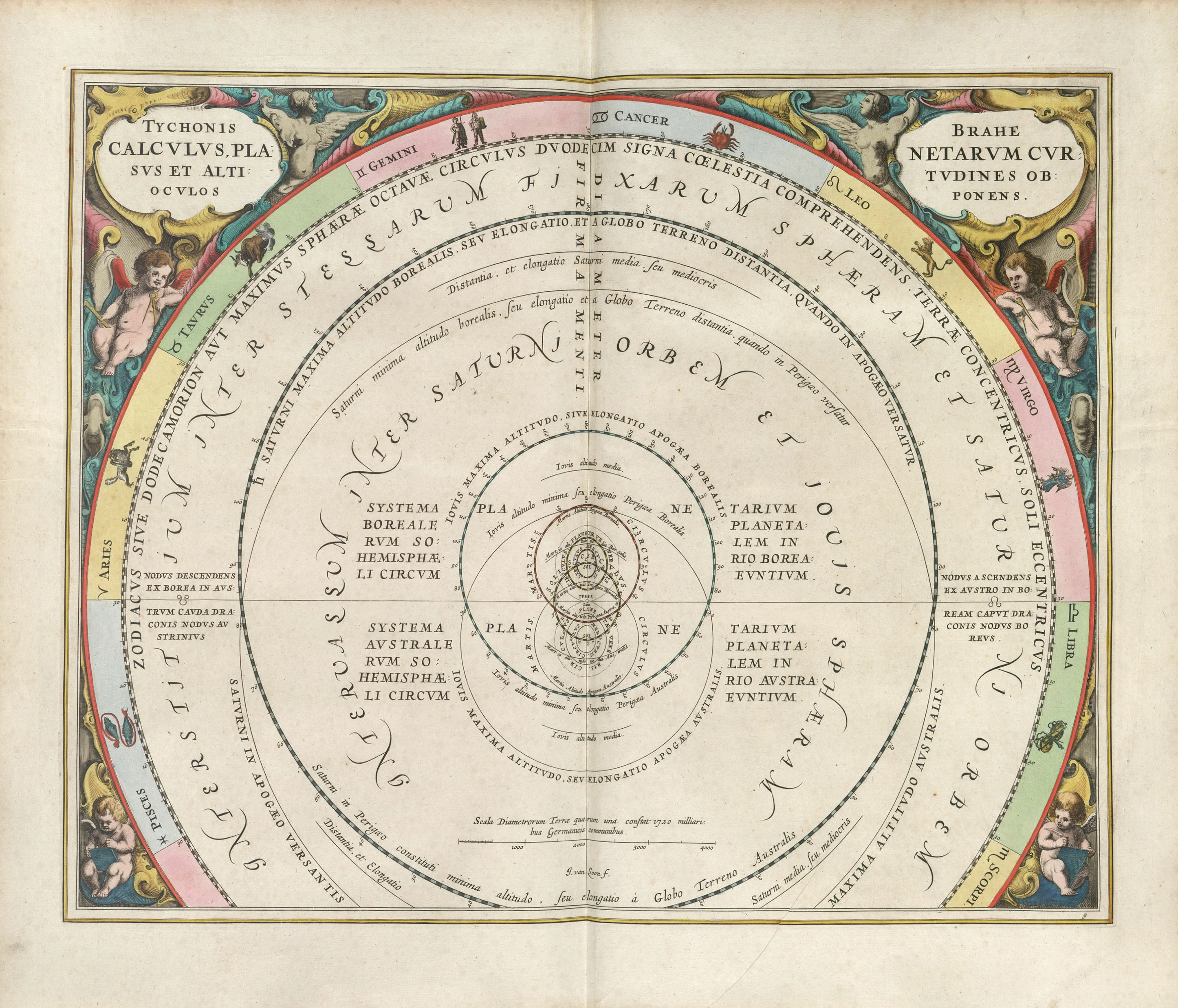It was the first space race: did the sun orbit the earth or did the earth orbit the sun? In the 1600s it was up for grabs. The greatest minds in science and religion waged a war of observation and ideology to try and answer the question: what is our true place in the universe?
In this turbulent environment worked Andreas Cellarius, a cartographer and the president of a latin school in Hoorn, in North Holland. We don’t know much about Cellarius—only his birth, his death, and that he was interested in the mathematics of fortified walls and liked to write poetry about his fellow teachers.
But in 1660, Andreas Cellarius published a truly unique document. Cellarius worked with the engraver and portraitist Frederick Hendrick Van Hove, and the cartographer Johannes van Loon to compile the known history of astronomical systems into a single star atlas. Every competing theory and philosophy of the cosmos in a single, beautiful volume. He called it the Harmonia Macrocosmica.
The Harmonia Macrocosmica covered 1500 years of astronomical theory. It begins with Ptolemy’s Almagest star catalog from 150 A.D., the oldest surviving comprehensive document of celestial motion. The Macrocosmica then describes the renaissance theories of Nicolaus Copernicus, who’s 1543 book On the Revolutions of the Celestial Spheres made the dramatic statement that the earth orbited the sun, and became a cornerstone of the scientific revolution. The Macrocosmica continues to catalog Tyco Brahe’s planisphere, a “geo-heliocentric” system where the Sun and Moon orbit the Earth, and the other planets orbit the Sun.
The final pages of the Macrocosmica leave science behind in a series of colorful and imaginative depictions of the constellations, Greek, Roman, and the later Christian icons. It’s a sweeping and stunningly beautiful work, criticized in its time for refusing to take a side in the debate of sun vs earth, science vs religion. But to criticize the Macrocosmica is to misunderstand its purpose—it wasn’t telling us how the universe works, it was showing how we see ourselves in it.
...
Got questions, comments or corrections about Andreas Cellarius? Join the conversation in our Discord, and if you enjoy content like this, consider becoming a member for exclusive essays, downloadables, and discounts in the Obelisk Store.
